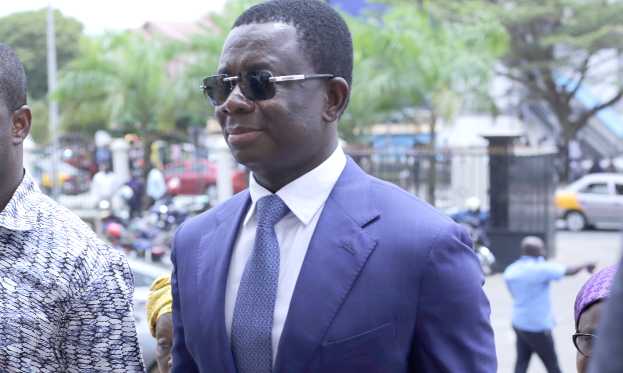Published
3 months agoon
By
Diella Teku
In a case that has sent political shockwaves through the nation, the Supreme Court is set to make a historic ruling today on a dispute regarding the authority of the Speaker of Parliament to independently declare parliamentary seats vacant. The outcome could redefine the limits of legislative powers under Ghana’s 1992 Constitution, with significant implications for the separation of powers between Parliament and the judiciary.
The dispute stems from Speaker Alban Bagbin’s October 17, 2024, decision to unilaterally declare four parliamentary seats vacant, citing violations of constitutional requirements by the Members of Parliament (MPs) in question. Bagbin’s interpretation suggested that his mandate as Speaker gave him authority to act decisively to maintain the legislative body’s integrity, particularly in cases where MPs allegedly breach constitutional provisions.
This move was swiftly challenged by Alexander Afenyo-Markin, leader of the New Patriotic Party (NPP) parliamentary caucus. Afenyo-Markin contends that Bagbin’s declaration not only overreached his constitutional role but also bypassed judicial oversight, which he argues is essential in such determinations. According to Afenyo-Markin, the Speaker’s decision to vacate these seats, without recourse to judicial review or the conduct of by-elections, undermines the electorate’s right to representation and the balance of powers.
In response to Afenyo-Markin’s suit, the Supreme Court placed an interim injunction on any further actions regarding the vacated seats, pending a final ruling. Speaker Bagbin, however, took an unyielding stance, filing a motion challenging the injunction on the grounds that it restricted his ability to uphold parliamentary standards. He argued that the court’s order encroached on his mandate to enforce the legislature’s integrity.
Despite Bagbin’s objections, the Supreme Court maintained the injunction, rejecting his motion to overturn it and signaling a firm stance on the importance of judicial oversight in matters of constitutional interpretation.
As the court prepares to deliver its verdict, political analysts and constitutional scholars are watching closely. Many view the case as a pivotal test of the balance between Ghana’s legislative and judicial branches, especially regarding the autonomy of the Speaker’s office in handling parliamentary seats and the role of the judiciary in interpreting the Constitution. Whatever the outcome, today’s judgment is expected to leave a lasting impact on the interpretation of constitutional boundaries within Ghana’s democracy.


Supreme Court Quashes Re-Collation Orders in Four Constituencies: A Boost for NDC’s Legal Strategy


Supreme Court to Hear NDC Challenge on High Court’s Re-collation Directive


Supreme Court Upholds Legislative Autonomy in Human Sexual Rights Bill Case


Supreme Court to Rule on Anti-LGBTQI+ Bill Challenge, Case Delays Attributed to Parties’ Inaction


Supreme Court Curbs Speaker Bagbin’s Power, Protecting Constituents’ Right to Representation


Supreme Court to Deliver Judgment on Speaker’s Controversial Declaration of Vacant Parliamentary Seats on Tuesday


Supreme Court Resumes Hearing on Anti – LGBTQ+ Bill


E-Levy will go even if we don’t get justice from Supreme Court – Ablakwa hails Mahama.

SC ruling on Opuni’s case a travesty of justice”- NDC

























